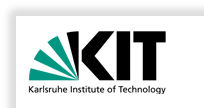Henrik Bohnenkamp (RWTH Aachen, Germany)
Juliana K.F. Bowles (University of St Andrews, UK)
Jeremy Bradley (Imperial College London, UK)
Ivana Cerna (Masaryk University, Czech Republic)
Kenneth Chan (King's College London, UK)
Martin Fraenzle (University of Oldenburg, Germany)
Ludovic Henrio (INRIA Sophia Antipolis, France)
Jan Kofron (FZI Research Center, Germany)
Samuel Kounev (University of Karlsruhe, Germany)
Heiko Koziolek (ABB Research Ladenburg, Germany)
Sotiris Moschoyiannis (University of Surrey, UK)
Julia Padberg (TU Berlin, Germany)
Frantisek Plasil (Charles Univerity, Czech Republic)
Iman Poernomo (King's College London, UK)
Antonino Sabetta (ISTI CNR Pisa, Italy)
Cristina Seceleanu (Mälardalen University, Sweden)
PC co-chairs:
Jens Happe (University of Karlsruhe, Germany)
Ralf Reussner (University of Karlsruhe, Germany)
Barbora Zimmerova (University of Karlsruhe, Germany)




